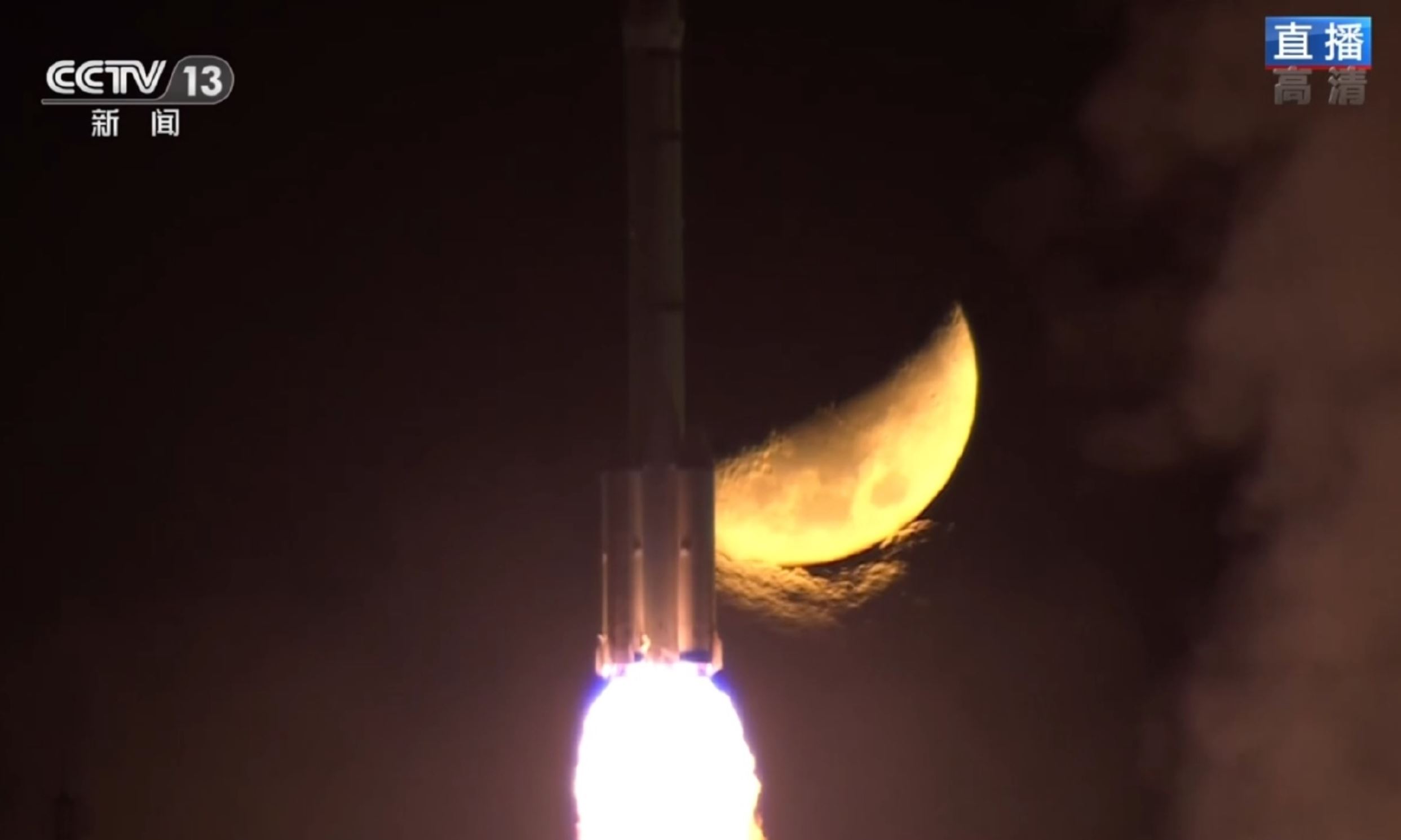HELSINKI — China has six astronauts aboard its recently-completed space station for the first time following the arrival of three crew members aboard Shenzhou-15.
Shenzhou-15 launched from the Jiuquan Satellite Launch Center in the Gobi Desert at 10:08 a.m. Eastern Nov. 29. Rendezvous and docking with the Tiangong space station was completed at 4:42 p.m., China’s human spaceflight agency, CMSA, confirmed.
Astronauts Fei Junlong, Deng Qingming and Zhang Lu are to be greeted aboard Tiangong by Shenzhou 14 crew members Chen Dong, Liu Yang and Cai Xuzhe, who have spent the last six months aboard the station and overseen the arrival of two new modules.
The Shenzhou 15 crew will be sustained by supplies delivered to Tiangong aboard the Tianzhou-5 cargo mission launched Nov. 11 Eastern time.
The Tiangong space station now consists of three roughly 22-ton modules in a 393 by 386-kilometer orbit. The 13.5-ton Tianzhou-5 cargo spacecraft and two roughly 8.2-ton Shenzhou spacecraft are docked with it. The Shenzhou-14 crew are expected to return to Earth in early December.
The first crew rotation marks the start of science operations on Tiangong, which carries 24 experiment cabinets and a payload airlock.
China aims to keep the orbital outpost constantly occupied and operational in orbit for at least ten years. China will begin to send international experiments to the station through an initiative with UNOOSA in the near future.
It is expected that Tiangong will outlast the aging International Space Station and could become the only permanent crewed outpost in orbit. The arrival of Shenzhou-15 at Tiangong signifies the completion of plans approved in 1992 to develop human spaceflight capabilities and build a space station.
The country’s first crewed mission, Shenzhou-5 in 2003, made it only the third to develop independent human spaceflight capabilities. Two Tiangong test labs followed in the 2010s to test rendezvous and docking, life support and on-orbit operations. At the same time China was effectively barred from joining the ISS by U.S. legislation which effectively prevented NASA engagement with Chinese state entities.
China aimed to launch its first proper space station module in 2018 and complete the station with further module launches in 2020 and 2022. A failure of the Long March 5 rocket in July 2017 and subsequent issues with the rocket’s engines and turbopumps delayed this schedule.
With the Long March 5B finally operational, China condensed the construction phase of Tiangong to fit inside 18 months. The Tianhe core module launched in April 2021, and culminated 10 launches later with Shenzhou-15 arriving at the completed T-shaped complex.
Tiangong itself could also be expanded from three to six modules, according to Chinese space officials. Such an expansion may depend upon other countries joining the project.
The Xuntian optical module—a co-orbiting, Hubble-class space survey telescope with a two meter aperture and 2.5 gigapixel camera—is planned to join Tiangong in orbit in late 2023 or 2024.
The decision to embark on a space station program was taken back when the country’s economy represented around 2% of the global economy and seeking a foothold in the international launch market.
China has since become the world’s second largest economy behind the United States, and achieved a number of feats in space, including a Mars rover landing, lunar far side landing, building its Beidou GNSS constellation and more.
The country is also moving forward with a robotic lunar exploration program with the goal of building a lunar base in the vicinity of the south pole of the moon in the 2030s.
This pathway is designed to converge with human spaceflight experience gained from Tiangong and the development of new, large rockets to allow China to send astronauts to the International Lunar Research Station (ILRS).
